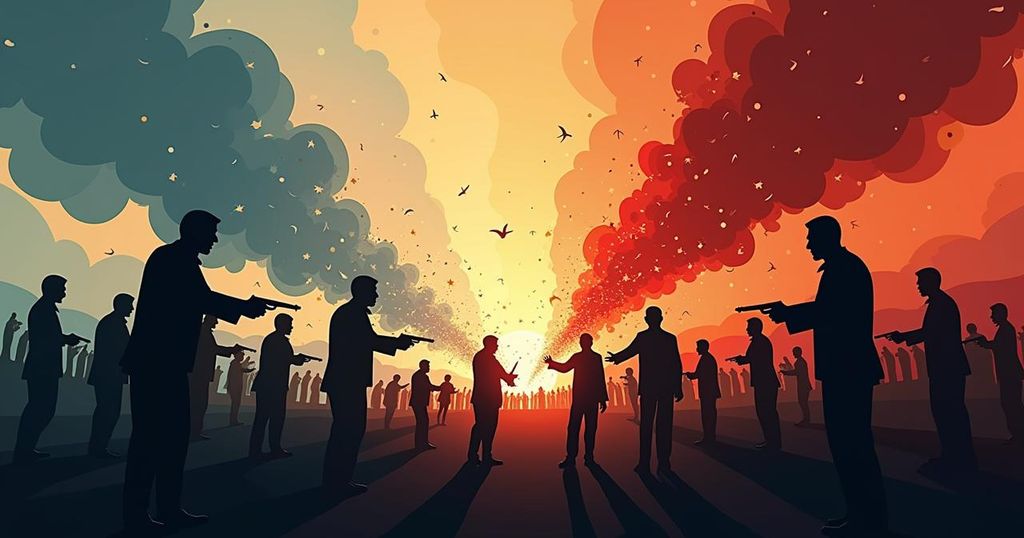Russia’s Strategic Interests Amidst the Israel-Iran Conflict
The escalating conflict between Israel and Iran, particularly in Lebanon, presents Russia with complex challenges as it balances its historical relations with Hezbollah and reliance on Iranian military resources. Analysts argue that while Russia prefers chaos over war, it actively engages in regional diplomacy to mitigate conflict while pursuing its strategic interests, particularly concerning its military operations in Ukraine.
The ongoing conflict between Israel and Iran, particularly regarding Lebanon, presents intricate challenges and considerations for Russia. As Israel intensifies its military operations against Hezbollah and other targets in Lebanon, over 2,000 casualties have been reported, compelling Russian citizens such as Anna Levina, a researcher in Beirut, to stockpile supplies in anticipation of potential escalations. Conversely, Russia grapples with its historical connection with Hezbollah and its dependency on Iranian military support for its initiatives in Ukraine. Analysts indicate that Russia’s strategy favors chaos rather than outright war. Russia’s historical foreign policy, driven by a desire for a multipolar world as an alternative to the U.S.-led order, faces obstacles as U.S. support for Israel undermines peace efforts, thus complicating Russia’s geopolitical ambitions. Notably, while Russia condemns military incursions into Lebanon and criticizes U.S. intervention, it simultaneously benefits strategically from the regional turmoil by diverting American focus from the war in Ukraine. Experts suggest that while Moscow welcomes the chaos, it remains wary of the repercussions of a full-scale conflict, preferring to maintain its alliances, particularly due to its militaristic partnerships with Iran, which include receiving advanced weaponry that bolsters Russian capabilities.
The conflict between Israel and groups in Lebanon, particularly Hezbollah, has escalated dramatically, leading to severe humanitarian impacts and strategic implications for regional powers. As tensions rise, Russia finds itself in a complex position due to its longstanding relations with Iran, which provides military support for Russia’s involvement in Ukraine. Russia’s history with Hezbollah is multifaceted, characterized by Cold War-era alliances and ongoing geopolitical maneuvering due to its influence in Syria. The delicate balance Russia attempts to maintain involves mitigating direct confrontations while leveraging the turmoil to divert U.S. attention from its activities in Ukraine, contributing to a multifaceted diplomatic landscape.
In summary, Russia’s strategic interests in the Israeli-Iranian conflict underline its complex relationships with regional players such as Iran and Hezbollah. While Moscow opposes an escalation to full-scale war, it acknowledges the benefits of regional chaos as it serves to distract the U.S. from the ongoing war in Ukraine. The interplay of historical ties, military dependencies, and diplomatic engagements highlights Russia’s intricate role in Middle Eastern geopolitics amidst rising tensions.
Original Source: www.aljazeera.com




Post Comment